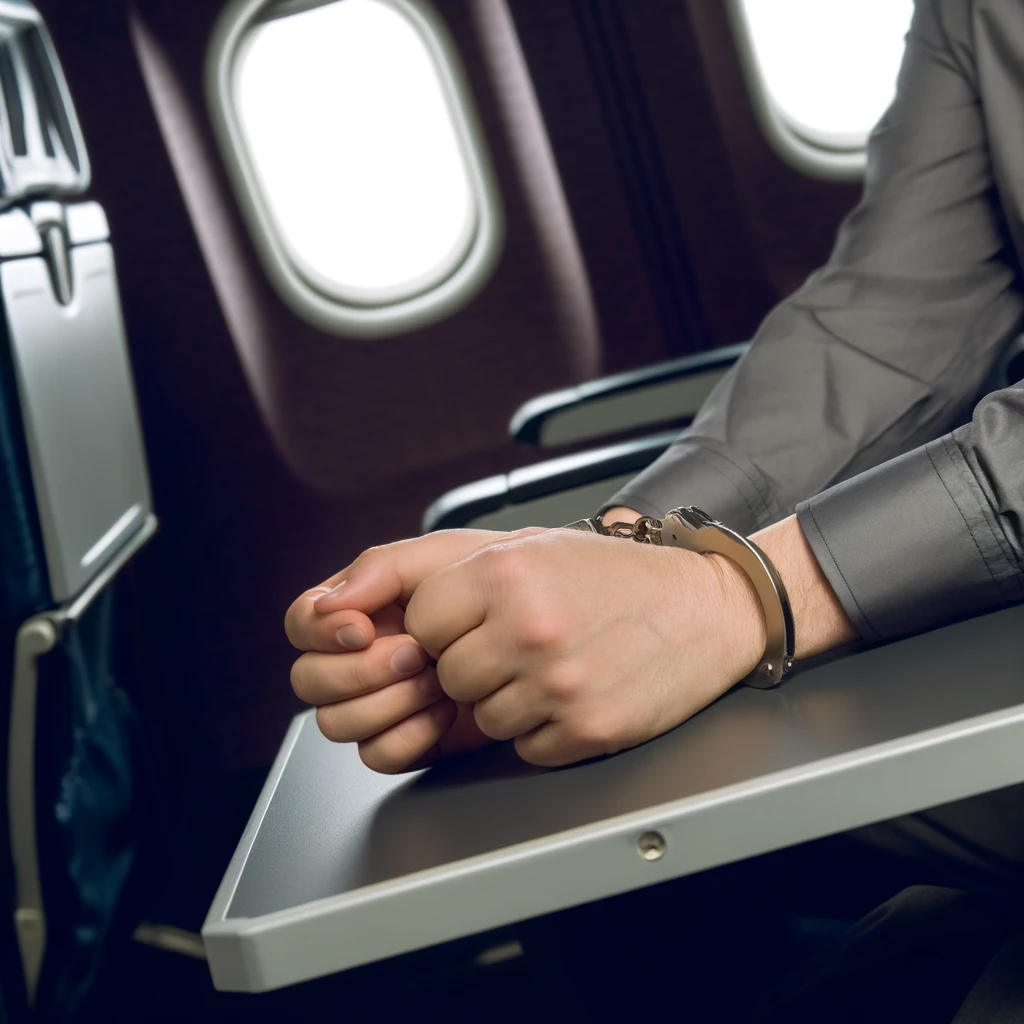In recent years, unruly passenger behavior has become a growing concern for airlines around the world. While it’s not a new issue, the number of incidents has increased dramatically, particularly after the COVID-19 pandemic. In this post, we’ll look at the factors behind the rise, how airlines and authorities manage unruly passengers, and the penalties they face globally.
The Surge in Unruly Passenger Incidents
Globally, the airline industry saw a steady increase in unruly passenger cases over the years, but 2021 marked a significant turning point. The International Air Transport Association (IATA) reported that in 2022, there was one unruly passenger incident for every 568 flights, up from one per 835 flights in 2021 (Click here to read IATA’s report). The rise was especially noticeable during the pandemic, as conflicts over mask mandates and increased passenger frustration led to spikes in disruptive behavior.
In the United States, the Federal Aviation Administration (FAA) recorded nearly 6,000 incidents of unruly behavior in 2021, a massive increase from the 1,161 cases reported in 2019 (sources: Home | USAFacts and the Federal Aviation Administration). However, this issue extends far beyond the U.S. In the United Kingdom, airlines like easyJet and Ryanair have also faced challenges, often exacerbated by alcohol consumption, as reported by eKathimerini) and LADbible.
In Europe, the European Union Aviation Safety Agency (EASA) has reported similar trends, with several cases involving physical violence or attempts to interfere with crew duties. One notable case involved a recent easyJet flight from London Gatwick to Kos, where a drunk passenger tried to storm the cockpit, forcing an emergency landing in Munich (full report by eKathimerini).
Why Have These Incidents Increased?
Several factors have contributed to the rise in unruly passenger behavior:
- Pandemic-Related Stress: The pandemic led to heightened stress and uncertainty, particularly around health measures like mask-wearing. IATA reported that non-compliance with mask mandates was a major factor in 2021.
- Alcohol Consumption: Many incidents involve intoxicated passengers, with airlines calling for stricter rules on alcohol consumption both before and during flights. For example, Ryanair has proposed a two-drink limit at airports to curb disruptive behavior (full report on this on LADbible).
- General Travel Anxiety: After years of restricted travel, the return to the skies has brought additional stress for passengers. This anxiety, combined with operational delays, has fueled tension and led to an increase in onboard conflicts.
How Airlines Handle Unruly Passengers
When dealing with unruly passengers, airlines follow strict protocols to ensure the safety of all onboard. Flight crews are trained to handle these situations, and if necessary, the aircraft may divert to a nearby airport so that local authorities can arrest the disruptive passenger. This was the case in the aforementioned easyJet flight to Kos.
Internationally, regulations differ slightly, but most countries follow the guidelines set forth by the Montreal Protocol 2014 (MP14). This treaty encourages cooperation between countries to prosecute unruly passengers regardless of where the offense occurred. In the European Union, passengers who exhibit threatening behavior can face criminal prosecution in the country where the flight lands.
Global Penalties for Unruly Passengers
Unruly passengers face serious legal and financial penalties, which vary depending on the country and severity of the offense. Here are some of the consequences passengers may face:
- Fines: In the U.S., the FAA can impose fines of up to $37,000 per violation, with some incidents resulting in multiple fines (read more from the FAA here). In Europe, airlines can also impose heavy fines, particularly when criminal charges are involved.
- Jail Time: Many countries, including those in the European Union, pursue criminal charges against passengers who interfere with flight crew duties. This can result in jail time, as seen in some of the more severe cases involving physical violence.
- No-Fly Lists: While the FAA does not maintain a national no-fly list for unruly passengers, airlines can ban passengers from future flights. In Europe, some carriers have introduced similar policies, ensuring that individuals involved in disruptive behavior cannot fly with them again. Additionally, the UK Civil Aviation Authority (CAA) works closely with airlines to prevent repeat offenses.
The Long-Term Consequences of Being on a No-Fly List
Being placed on a no-fly list can have significant long-term effects. While airlines can enforce individual bans, some regions are pushing for shared databases of unruly passengers. In the U.S., for instance, there is ongoing debate about a national no-fly list for disruptive passengers, which could potentially prevent them from boarding any commercial flight in the country. In Europe, while no such list exists yet, airlines have called for stricter regulations to curb repeat offenders.
How to Avoid Becoming an Unruly Passenger
The best way to avoid serious penalties is simple: comply with airline policies, respect fellow passengers and crew, and manage stress responsibly. Traveling can be stressful, but the consequences of disruptive behavior can be severe, including fines, jail time, and bans from future flights.
Conclusion
The rise in unruly passenger behavior is a growing concern for airlines worldwide. Whether it’s due to pandemic-related tensions, alcohol consumption, or general travel stress, it’s important to understand that the consequences of such actions are serious. By being aware of the risks and penalties involved, we can all contribute to making air travel safer and more enjoyable for everyone.

Leave a Reply